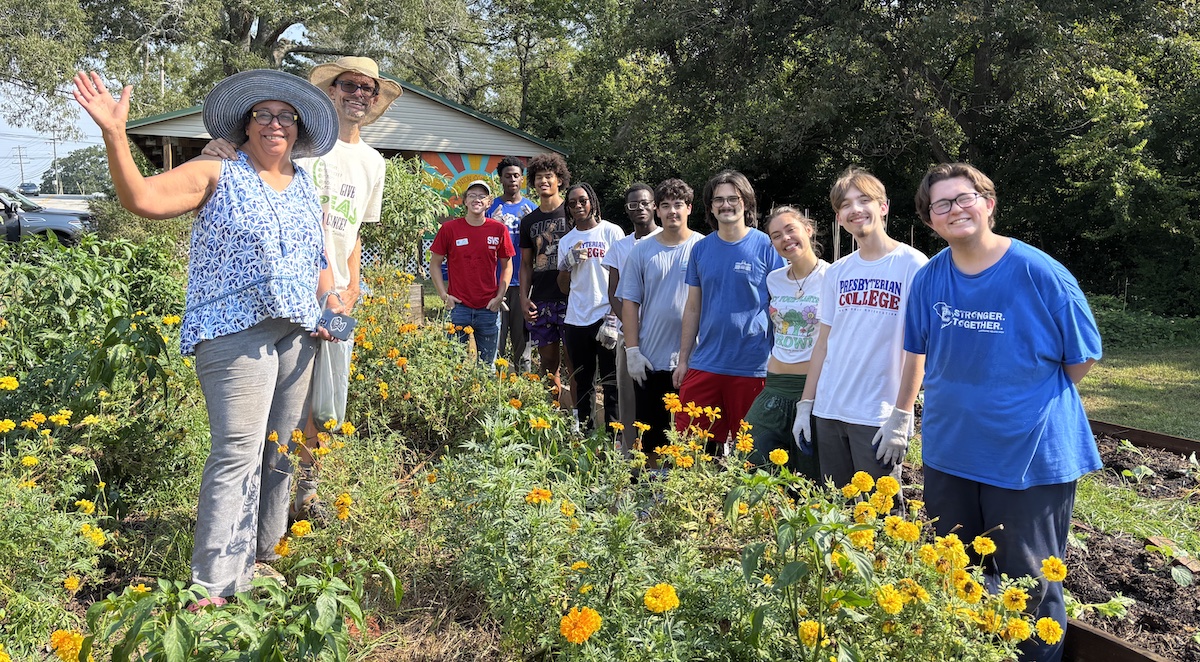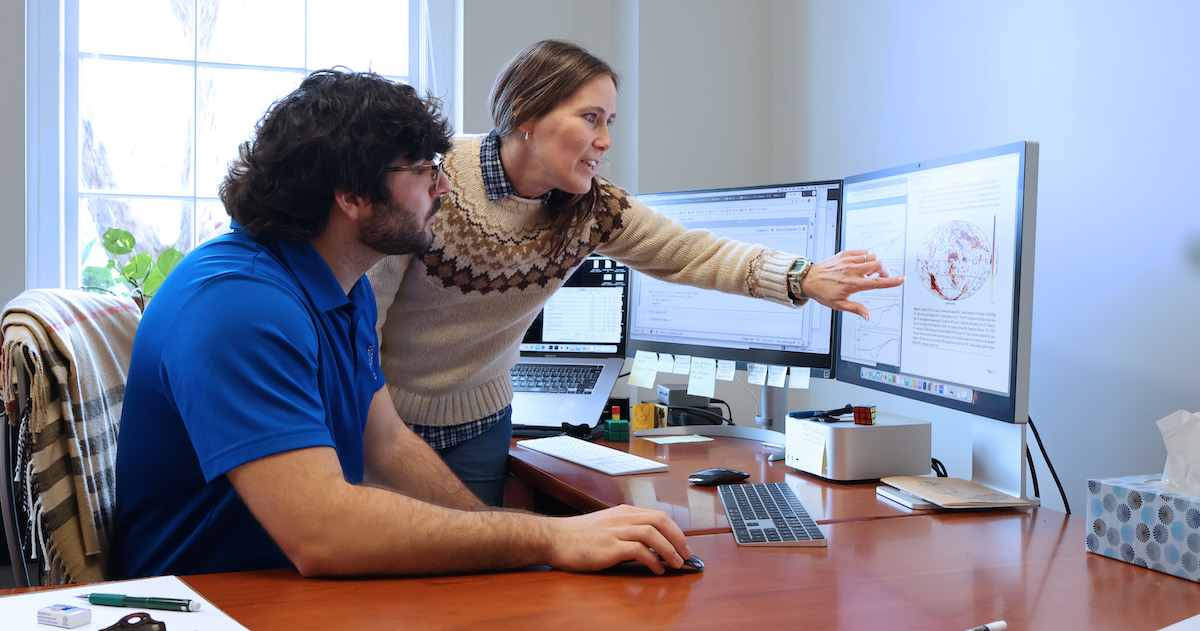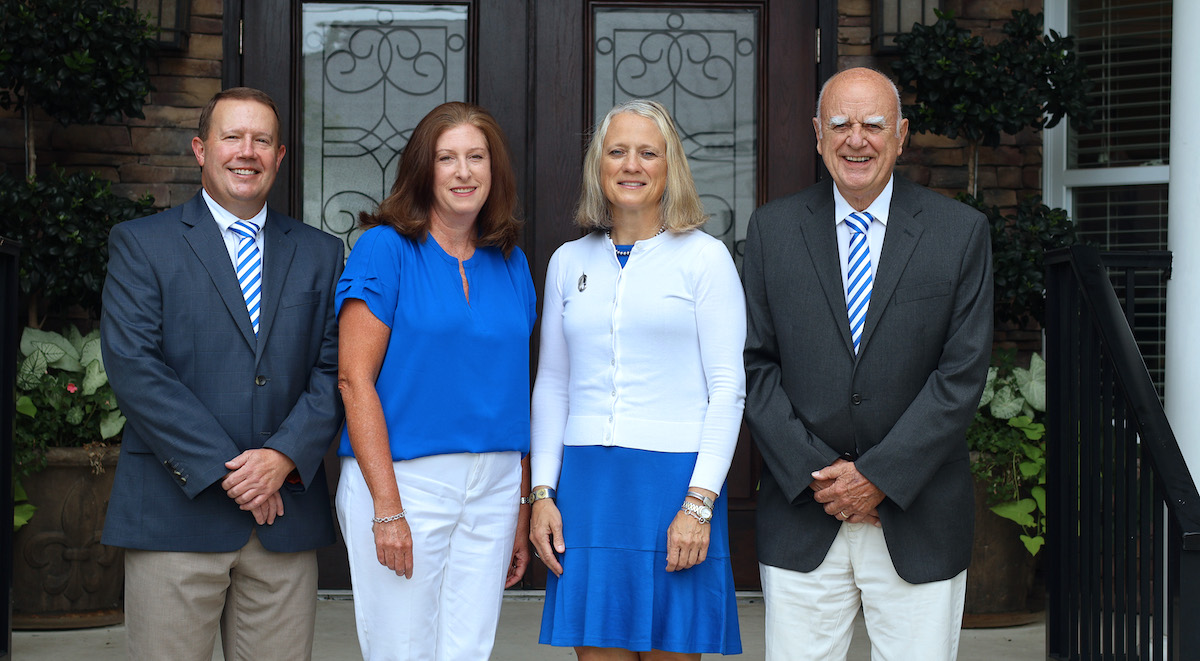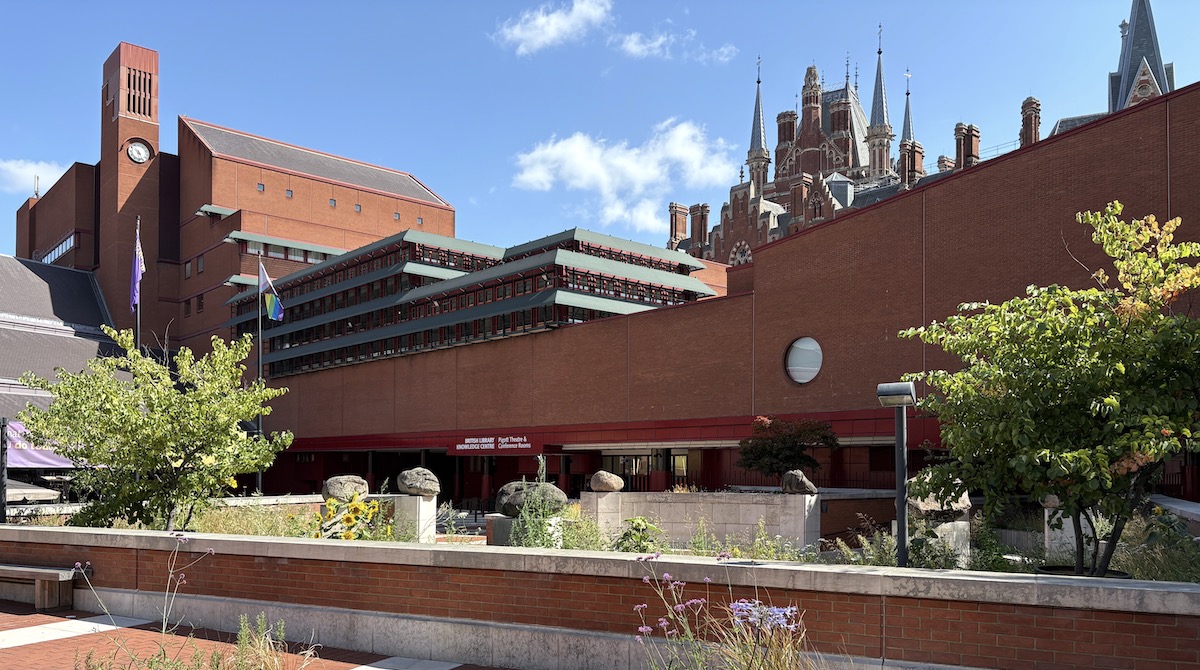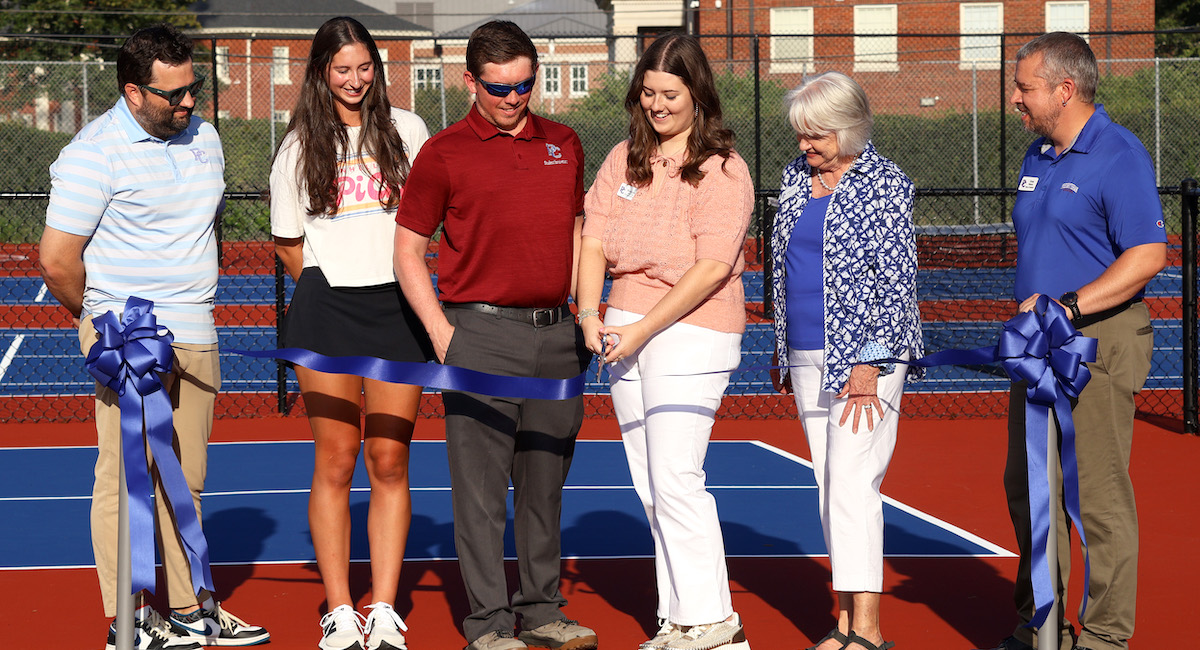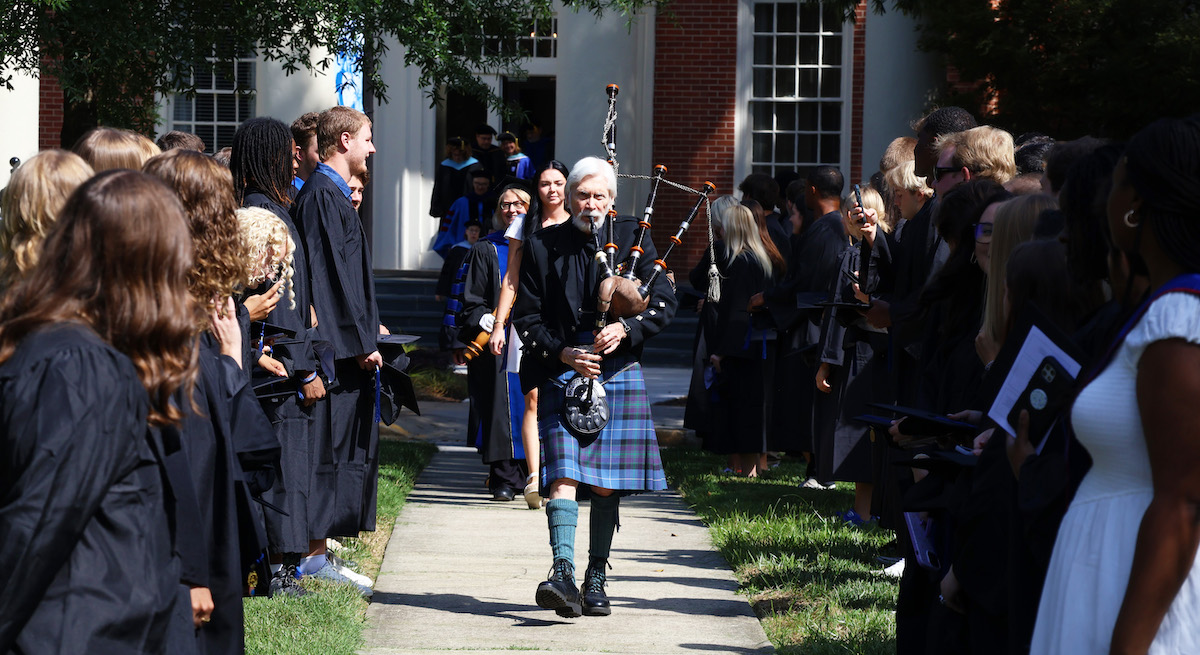Presbyterian College choir director Kipper Ackerman ‘97 leads students to New York and the national stage
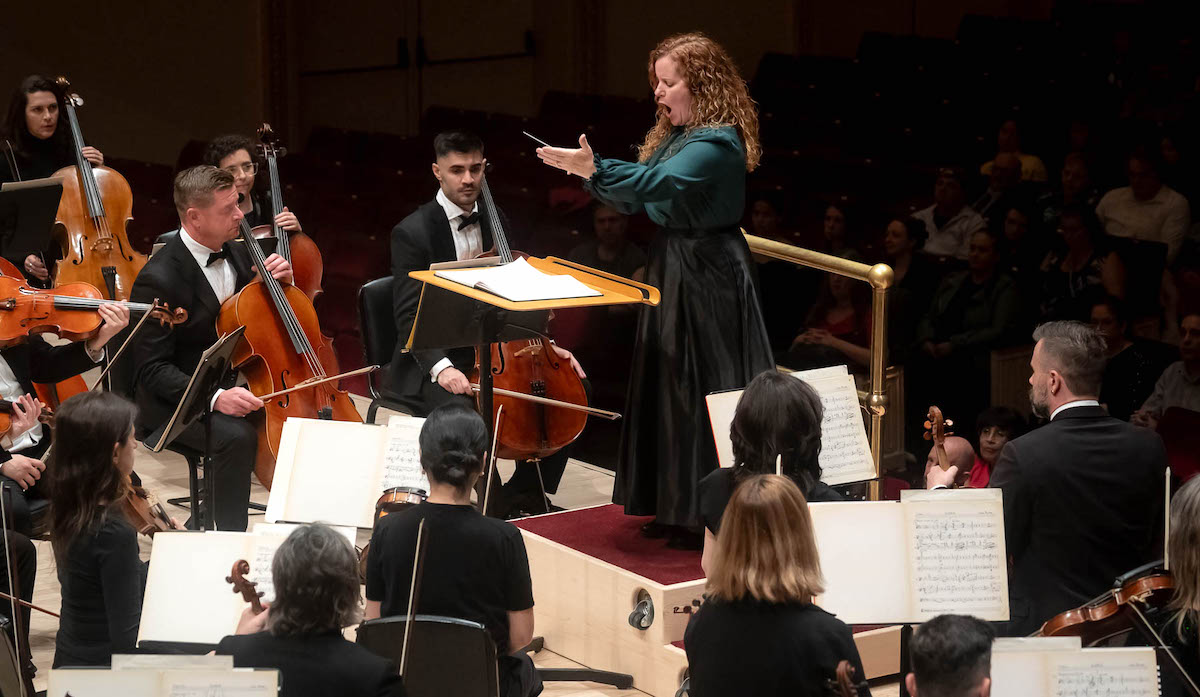
Presbyterian College director of choral activities Kipper Ackerman never imagined she would one day stand on the conductor’s podium at Carnegie Hall, baton in hand, with more than 100 voices and a full symphonic orchestra following her lead.
But this summer, the 1997 PC graduate did just that—bringing not only her vision to life, but also guiding 20 PC students, members of the Laurens County Chorale, and singers from across the country into a moment they’ll never forget.
“This truly is just a reminder that it is so worth the amount of work that you put into it,” Ackerman said. “As a professor, I think when you stop doing the extra, that’s when things are going to slow down. And we don’t need to slow down.”
The Call to Carnegie
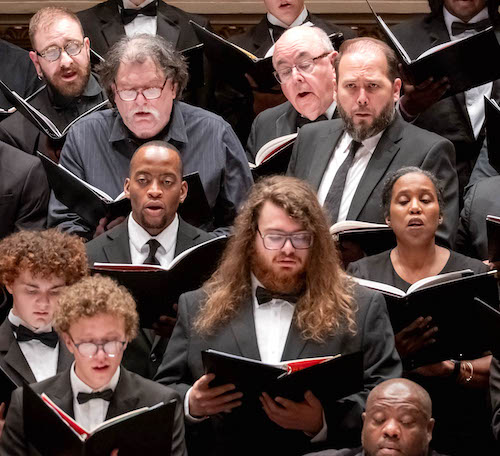
Ackerman was invited to serve as a guest conductor by MidAmerica Productions, a New York-based organization that helps musicians of all levels perform at prestigious venues. The connection came through Dr. Sonja Sepulveda, a longtime colleague and choral director from Ackerman’s hometown of Sumter.
“They were looking for one more female guest conductor,” Ackerman said. “They have an easy time finding male conductors at that level, but a harder time finding female ones. Sonja told them, ‘I know just the person.’”
At the time, Ackerman had not yet started her position at PC, but her vision was forming. Having witnessed a post-COVID hunger for community and connection in Sumter’s choral scene, she saw music—and choir specifically—as a way to rebuild something bigger than just a performance.
“People wanted to get off the computer screen and feel a sense of community again,” she said. “Creating music lets you serve the music together. You depend on others.”
Reviving the Program
When Ackerman arrived at PC, the college choir had just 12 students and had seen four conductors in three years.
“I’m the fourth conductor for the current junior class,” she said. “I’m sure they didn’t trust me at first.”
Rather than push Carnegie Hall right away, she built support from students, colleagues, and administrators—particularly Dr. Erin McAdams, PC’s provost and vice president for academic affairs. With help from the college’s advancement office and community donors, she secured enough funding to make the trip financially viable for students.
In a single year, the choir grew from 12 to 25 members, with 20 making the trip to New York. Ackerman also brought along members of the Laurens County Chorale, which she directs, several vocalists from the Sumter community, and formed a larger ensemble by partnering with the Brookdale Concordia Chorale from New Jersey, the Arizona Lutheran Academy Choir, and the Virtual Chorale of New York.
In all, more than 120 voices filled the stage at Carnegie Hall.
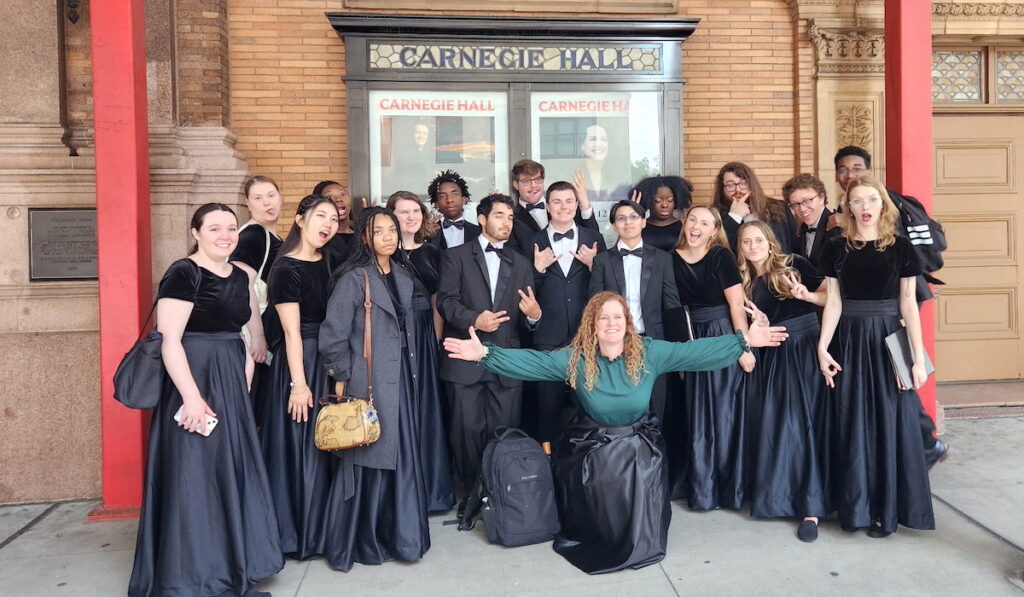
The Music and the Magic
The PC performers joined in presenting two works by renowned British composer John Rutter—Te Deum and Gloria—accompanied by a professional symphonic orchestra. Months of rehearsals, including separate Monday, Tuesday, and Thursday evening practices, were paired with self-study using part-dominant rehearsal tracks.
“This wasn’t just teaching students their parts,” Ackerman said. “It was studying the entire score, preparing to stand in front of professional musicians who knew their music and expected precision.”
The pressure was high, especially during Ackerman’s first rehearsal with the orchestra.
“I was terrified,” she admitted. “They’re professional musicians in New York City. They don’t care who you are sometimes. But once we started, they asked questions—‘In measure 49, are you giving us a large downbeat?’—and I realized they did need me. That gave me confidence.”
At the final dress rehearsal, students and performers were allowed a moment to take selfies on stage and soak in the history of Carnegie Hall.
“That was a special moment,” Ackerman said. “Watching them on the monitor backstage—seeing them take it all in—I knew they had no idea how this was going to feel.”
Angel’s Story
For PC student Angel Wells, the trip was nothing short of life-changing.
Wells, a chemistry major from Hampton, S.C., is also in ROTC and hadn’t been able to attend many rehearsals. Initially, she hadn’t planned to join the trip—until Ackerman spotted her on campus and asked, “Do you want to go to New York?”
“I couldn’t resist,” Wells said. “I practiced hard on my own and made sure I was ready.”
Standing on the Carnegie stage, Wells said she felt no fear—only excitement.
“When it was time to perform, I looked out at the crowd and got excited,” she said. “We put in the work to get to this moment, and now it was time to show it. My favorite part was hearing all of our voices with the orchestra. I love hearing live instruments, and to be performing with them was amazing.”
Wells also enjoyed the cultural experience of New York City. Her highlights included seeing Gypsy on Broadway—her first live theater show—and hearing a worship band perform in Times Square.
“It reminded me that God is the one who allowed me to be in this position,” she said. “I definitely was feeling blessed.”
A Lasting Impact
Ackerman said she hopes the Carnegie Hall experience becomes more than just a memory for students—it’s a foundation to build from.
“We joked about how to get to Carnegie Hall—practice, practice, practice,” she said. “But the opportunities are there. Not everybody walks through the door. It is hard and it’s scary, but I didn’t shy away from that with the students. I told them: this is my first time doing this too.”
That vulnerability became a lesson in leadership, one that helped her earn the trust of a previously skeptical group.
And when she walked out on stage for the final performance—after shaking the concertmaster’s hand, opening the score, and taking a moment to look at the faces of those amazing vocalists with smiles adorning their faces, filled with anticipation—everything fell into place.
“All the things I missed in rehearsal that morning—different time signatures, cues for the orchestra—we nailed them,” she said.
Ackerman insists that her performers not have jewelry, etc. on their wrists when they perform, yet she accidentally walked onto the stage that afternoon with a simple rubber band on her wrist, a practical tool most choir directors carry. It became a symbol of the journey.
“I might keep it on until it dry rots,” she said with a laugh. “It reminds me that we actually did this. We held ourselves tight and did it together.”
From One Stage to the Next
Ackerman said the momentum from Carnegie is only the beginning.
“We’ve started to build something again,” she said. “These students now know what they’re capable of.”
For students like Angel Wells, that means seeing themselves in a new light—not just as chemistry majors or ROTC cadets, but as artists.
“I never would’ve thought I would be in that position,” Wells said. “But I’m so glad I said yes.”
From a casual question on campus to one of the most renowned stages in the world, Ackerman and her students proved what can happen when talent meets opportunity—and when a choir director dares to dream big.

